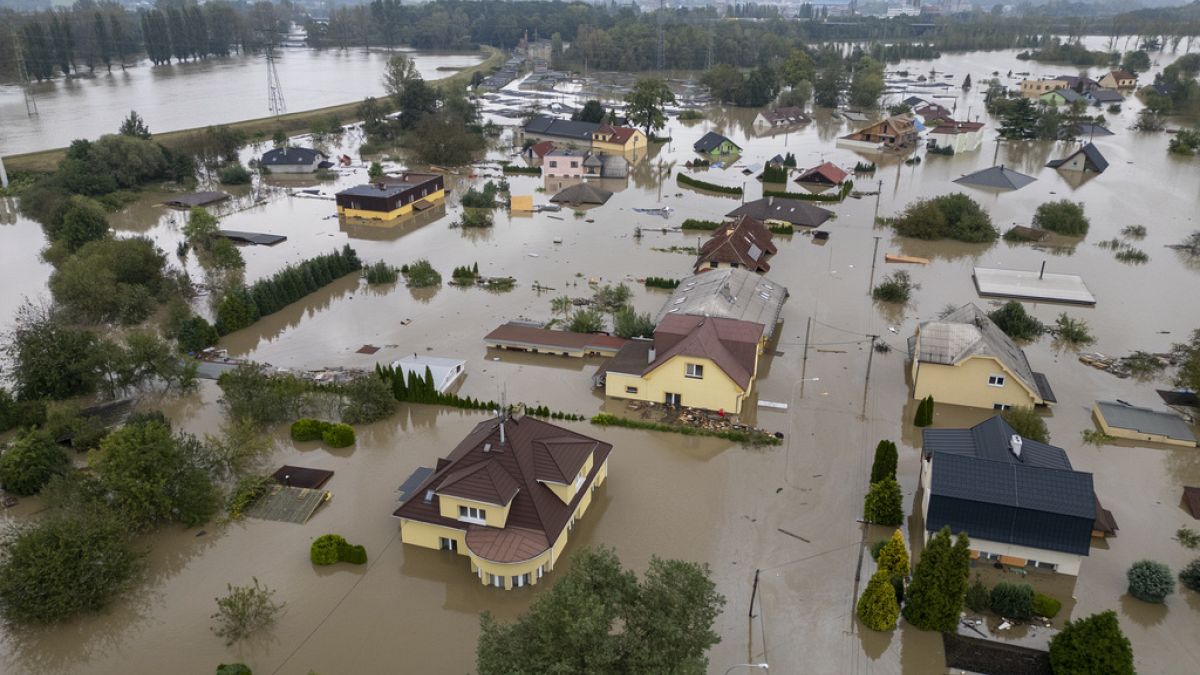The European Parliament held its plenary session in Strasbourg this week. The main item on the agenda was an assessment of the Hungarian presidency’s achievements so far and a presentation of the remaining tasks and challenges facing the EU, which Mr Viktor Orbán PM, as head of the presiding member state, wanted to present.
Author: Szilárd Szélpál
Unfortunately, significant rainfall in a short period has led to flooding disasters in several European countries, to which Europe has again been slow and delayed in responding. Although the EU has funds earmarked for these situations and their management in the Multiannual Financial Framework, they can only be released after a slow bureaucratic procedure. It has to be said that the delayed reform of the Lisbon Treaty, which the Commission and Parliament carried out in the previous cycle, has led to the result, after an extensive social and political consultation, that the division of tasks and powers between the Institutions, the lack of rethinking and rationalisation of their competences, continues to cause the EU’s slowness in its ability to respond. This slowness can have severe consequences in a natural disaster that occurs so quickly and affects several Member States. Improving the EU’s response capacity will hopefully be a priority for Members of the 10th Parliament. However, the replacement of a significant number of MEPs also means that many MEPs who do not know what the EU is, what its institutional system is, what powers it has, and what the most important thing is, the structure of the Multiannual Financial Framework (MFF) budget, how it is used and how it is financed, could be sitting in the Chamber.

Instead of hearing the Presidency’s programme, the present debate was solely about allowing the Commission to release funds from the Solidarity Fund to cover the costs of protection and recovery. Many people have argued about it and used the serious situation solely to deny climate change, criticise, and reject the European Green Agreement work programme for prevention and mitigation. They do not understand that prevention is a concept that exists not only in health or crime prevention but also in the economy and environmental protection. The aim is to understand the root causes and react on that basis at the pan-European level. The Member States and their disaster management authorities are taking the necessary steps, but what could the Commission and Europe’s role and possibilities be in this or similar situations?
The most urgent task now is for the EU to redefine the legal way the Solidarity and Assistance Fund is used. Few people know, but the money set aside in the Fund can only be used to deal with the consequences of a public health emergency or an environmental disaster. The legal process for a Member State to access this resource is at least two months, and the amount allocated must be used within 18 months of the decision. The biggest problem is that a member state takes at least two months to access these funds. Why? The reason for this is found in the Treaty of Lisbon because the Member State affected by the disaster is the first place to request the payment of funds from the Solidarity Fund. Once the request has been received, the Commission submits a regulation to Parliament and the Council granting the payment. These two EU institutions, as co-legislators, vote on whether or not the Member State’s request for funds is justified and whether or not the payment can be made. This is a slow process, often taking more than two months. It also significantly damages the EU’s image in the eyes of its electorate and global partners.
What is the solution? Either proceed with the EU Institutional Reform or opt for the usual recipe by adopting a Joint Motion for a Resolution (a legally non-binding declaration of the Parliament, agreed by all political groups to urge the Commission to act according to the Parliament’s needs). One in which Parliament urges the Commission to take all possible measures to ensure that the Solidarity Fund is paid out as quickly as possible and that additional resources are allocated in the next MFF. This is a sound motion for a resolution, but one that offers few solutions. It is intended as a future response to the current disaster situation. Increasing the Civil Protection Mechanism (rescEU) and its budget, and improving its organisational staff and equipment is a good plan, but again, it is not a response to the present, but a focus on the future.
If the political will is more ambitious than this, it is worth considering the possibility of an EU regulation that would give the Commission additional powers in disaster situations to access these resources immediately in the event of an emergency. Such a draft regulation could include the possibility of a disaster area declaration, which the Commission could use on an exceptional basis about Member States. The Solidarity Fund allocation for assistance could be used immediately to pay for the measures needed to respond to an immediate disaster. This could be used only to temporarily cover immediate measures as long as the Commission considers the Member State a disaster-stricken area. The existing provisions and procedures would continue to apply for allocating and using the majority of the Solidarity Fund funds. Thus, the criteria for the envelope that can be used for the reconstruction and repair of damaged infrastructure will not change. Why is this a good solution? On the one hand, it would preserve transparency and the co-legislative role of the Parliament-Council in such cases. On the other hand, in the event of a disaster, the Commission could immediately release funds from the assistance envelope to mitigate the costs of current flood defences in the Member States, thus improving the EU’s responsiveness and visibility.
The way is open, and Parliament and the EU as a whole have the opportunity to rethink the structure and tasks of their institutions at this critical time and try to find their feet in the sea of political interests and counter-interests with properly trained professionals.
In this connection, it would be good to seek answers at the European level to the problems that arise at the European level. One of the main things needed is for MEPs to grow up to this role and finally realise that they are not sitting in a Member State legislature but in the European Parliament. It is where we cannot and must not look at EU processes and legislation solely through the eyes of the Member States because we need thinking and decision-making at a Pan-European level.
Cover photo credit: Euronews

Szilárd Szélpál served as an environmental expert in the European Parliament from 2014, where he utilized his expertise to influence policy-making and promote sustainable practices across Europe. In addition to his environmental work, Szilárd has a deep understanding of foreign affairs, offering strategic advice and contributing to the development of policy initiatives in this field.



